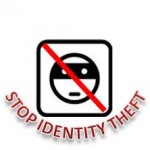Last month, I discussed how everyone is affected by the different types of identity theft. This month, I’m sharing tips from the  experts to help you reduce the risk of becoming another victim of identity theft. Some of these items are not new, but they certainly bear repeating!
experts to help you reduce the risk of becoming another victim of identity theft. Some of these items are not new, but they certainly bear repeating!
-
Buy a shredder, preferably a cross-cut shredder, and shred papers containing any personal or medical information. Do not just throw them in the trash. Thieves are not afraid to dumpster dive to get your information.
-
Keep financial records in a safe place in your home. That includes your Social Security and Medicare cards. Do not carry your Social Security or Medicare cards in your wallet or purse.
-
Take your mail out of your mailbox as soon as possible. Do not leave your outgoing or incoming mail in an unlocked mailbox overnight.
-
Do not give your Social Security number out if at all possible. Ask if you can use another form of identification.
-
Do not give personal information to anyone who phones or emails you. Also, if you initiate the call, make sure you know exactly who you are speaking with. Here’s a new twist reinforcing the need to truly know who you’re giving credit card information to. This one targets travelers. Scammers are going to hotels and slipping bogus pizza delivery menus under each guest room door. The listed delivery phone number doesn’t really represent a pizzeria, but the phone number of a stolen cell phone, or one purchased with cash at a convenience store. The unsuspecting traveler calls that number expecting to be connected to a local pizzeria and gives them a credit card number to pay for the pizza. Unfortunately, that number is controlled by the identity thief. It is recommended that before calling for take-out, check with the concierge or front desk for a list of suggestions.
-
On the computer, use passwords that are not easy to guess; include upper and lower case alpha characters, numbers and symbols if possible. Change your passwords every couple of months.
-
Do not store your passwords on your computer. Write them down and store them in a safe place away from your computer.
-
Do not use the same password for all of your accounts. Though it’s convenient to do, you’re in essence giving the thief all the keys to your personal kingdom. Unique passwords for all accounts are a must!
-
Do not use a public computer for banking or submit any personal information on any site. The same rule applies to public WIFI. When you log into public networks, your password, user name and possibly all of the information you type into your computer is visible to anyone who is even a little tech savvy.
-
Use anti-virus and firewall protection to protect your computer against malware and spyware. Installing a LAN-based or WI-FI router with password protection will give you an additional layer of protection.
-
Clear your browser’s cache. Ideally, this should be done daily, or at the very least, weekly.
-
Read your bank and credit card statements for purchases or withdrawals that you did not make. Do the same with medical statements. Dispute any unauthorized transactions as soon as possible.
-
Sign up for online alerts from your bank. This will help you keep track of your account activity and can be done through your bank’s website preferences. You can choose to be notified when your account drops below a certain balance, if an external transfer has occurred, or whether a check has cleared the bank. This increases the communication between you and your bank which means you need to be sure you are reading a legitimate email from your bank. Do not fall victim to phishing scams or spear phishing. Both scams ask you for your personal information, but spear phishing comes from a friend’s hacked email account. A good rule of thumb is to NEVER access your bank account from a link in an email.
-
Did you receive a change of address that you did not initiate? Did you stop getting a bill? Or did you start getting a new bill you know nothing about? Someone may have stolen your identity.
-
Last but not least: Get your free credit report yearly from each credit reporting company.
Following these tips won’t guarantee 100 percent that you will never become a victim of identity theft, but it certainly reduces this risk. Vigilance and pro-active participation on your part is the key to making a stance in protecting your identity and financial assets.
